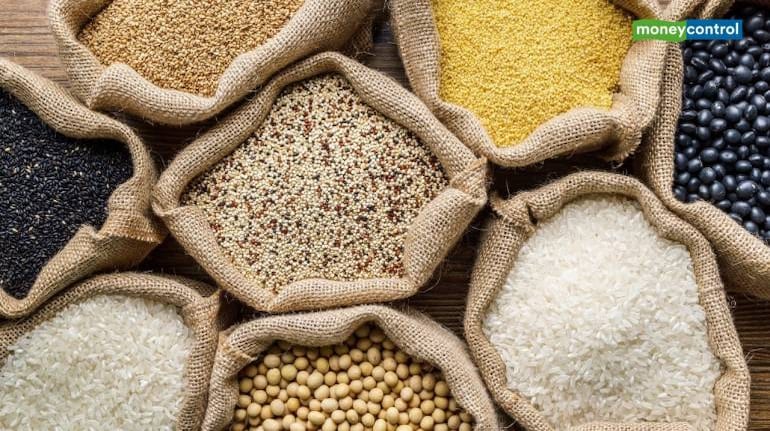



The price of tur, a staple lentil in India, has been on the rise, despite several steps by the government to cool it down.
As of July 16, the price of tur dal has increased by more than 32 percent on year, according to Department of Consumer Affairs data.
Tur prices have risen every day in the past week, increasing by a sharp 7 percent in June, from Rs 127.37 per kg a month ago, to Rs 136.29 per kg on July 16, the data said. On the same date a year ago, it was at Rs 103.03 per kg.
Prices of urad and moong, too, have increased, rising by 10 percent and 8.8 percent on year, respectively.
Also read: Comfort food no more: Dal rice set to get more expensiveSowing of pulses fallsThe continuing price rise comes at a time when delayed monsoon, with uneven rainfall distribution, has led to a decline in the sowing of pulses for the next season.
As of July 9, the acreage for pulses plummeted 25.8 percent, as compared to last year, according to the Union Ministry of Agriculture.
States, including Maharashtra and Karnataka, which account for over 50 percent of tur sowing and production, have received deficient rainfall this season.
What has the government done and will it be enough?In a significant step towards controlling pulse prices, the government has removed the procurement ceiling of 40 percent for tur, urad and masur under the Price Support Scheme (PSS) operations for 2023-24.
The decision, in effect, assures the procurement of these pulses from farmers at the minimum support price (MSP) without ceilings.
Through this move, according to a statement by the Ministry of Agriculture, the government hopes to motivate farmers to enhance the sowing area of tur, urad and masur in the upcoming Kharif and Rabi sowing seasons.
The government, on June 2 this year, had also imposed stock limits on tur and urad in order to prevent hoarding and unscrupulous speculation which could be contributing to the price increase.
Additionally, the basic customs duty of 10 percent on tur as well as urad continues to remain nil, till the end of FY2023-24. Concerned with high food inflation, the Centre had first allowed ‘free’ import of tur and urad in 2021 which has since continued.
“These measures will matter as whatever is available will not be kept back to manipulate prices. We will have to wait for the next few months for new stocks to come in and the situation to ease,” Sukhpal Singh, Professor at the Centre for Management in Agriculture, IIM Ahmedabad, says.
On removing the MSP limit, Singh says that while this may not prove beneficial immediately, it will definitely prove helpful for the next crop cycle as farmers may sow more, owing to the announcement.
However, the government is not currently looking at tweaking the import/export policy to cool down prices.
“While price rise is of concern, there are no discussions on raising imports or banning exports as of now. The import of pulses is already free and very little amount of pulses are exported out of the country,” an official told Moneycontrol.
Also read: Govt considers banning most rice exports as local prices surgeWhat is driving the price rise?Unlike moong and urad, which are relatively short-duration crops, ready to be harvested in 2-3 months after sowing, arhar or tur grows over a span of 5-6 months and can be harvested only in December-January, unlike September for others, Singh explains.
Tur is also the most popular and preferred lentil in all states across the country. In fact, in several states like Uttar Pradesh and Bihar, it is consumed on a daily basis. This comes in stark contrast to other pulses, such as moong or chana, which are not everyday staples, says Sudhir Kumar, Professor of Agriculture at JNU.
The above reasons, combined, lead to a rise in consumption and fall in stocks as the country awaits fresh produce and it is at the end of its season cycle that prices escalate, agriculture experts point out.
Rising price likely to have a significant impact on inflationTur is a staple food in many parts of the country, and its price increase will put a strain on household budgets.
India's headline retail inflation rate broke its four-month falling streak to rise to 4.81 percent in June, from 4.31 percent in May. The rise has been attributed to a steep rise in vegetable prices.
Additionally, a CRISIL report has pointed out that, in the past five months, the inflation rate of pulses has nearly doubled and it is likely to rise further in the next 6-7 months.
In the food inflation basket, pulses have a 6 percent weightage.
The combined effect of vegetable price rise, along with pulses, may result in the CPI inflation exceeding the monetary policy committee’s (MPC) latest forecast of 5.1 percent for FY2024, says Aditi Nayar, Chief Economist at ICRA Ltd.
Discover the latest Business News, Sensex, and Nifty updates. Obtain Personal Finance insights, tax queries, and expert opinions on Moneycontrol or download the Moneycontrol App to stay updated!
Find the best of Al News in one place, specially curated for you every weekend.
Stay on top of the latest tech trends and biggest startup news.